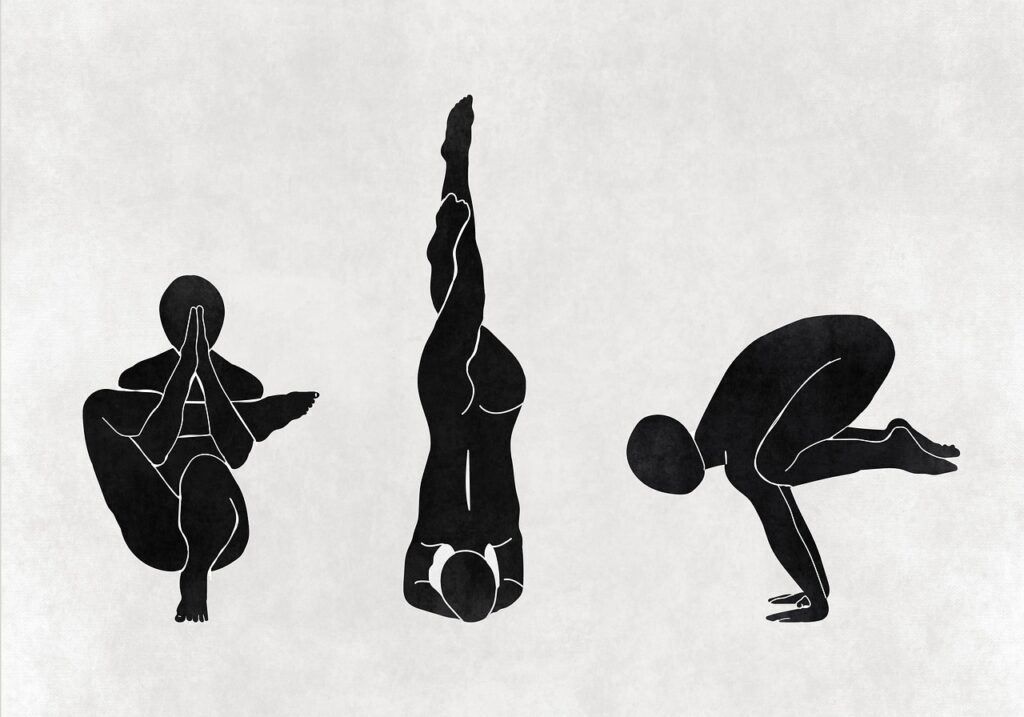
In our fast-paced world, the quest for a longer, healthier life often seems shrouded in complex medical advice and overwhelming statistics. Yet, the truth is, many of the most profound impacts on our longevity come from surprisingly simple, often overlooked daily habits. Health, as the World Health Organization defines it, is a state of complete physical, mental, and social well-being, not merely the absence of disease or infirmity. This holistic view invites us to look beyond quick fixes and embrace a lifestyle that actively cultivates well-being in all its dimensions.
Our journey towards extending our lives by a decade or more isn’t about grand, unattainable gestures. Instead, it’s built upon a foundation of consistent, intelligent choices that enhance our body’s natural resilience and support its optimal functioning. From the quiet hours of sleep to the ways we interact with our communities, every aspect of our daily existence holds the potential to add years of vibrant health to our lives.
This article delves into some of these less-talked-about, yet incredibly powerful, health habits. Drawing from robust research and established health principles, we’ll uncover how these simple adjustments can significantly impact your physical and mental vitality, helping you to not just live longer, but to live better and more fully. Let’s explore the first six of these transformative practices that can lay the groundwork for a healthier, more fulfilling future.

1. **The Transformative Power of Prioritizing Adequate Sleep**It’s easy to view sleep as a mere pause in our busy lives, a luxury we can sacrifice for productivity or entertainment. However, the science unequivocally tells us that sleep is an essential component to maintaining health, and in children, it’s vital for growth and development. The profound impact of adequate rest extends to every system in the body, influencing everything from metabolic regulation to immune response.
Ongoing sleep deprivation, defined in one study as six hours or less per night, has been directly linked to an increased risk for several chronic health problems. People with insufficient sleep were found to be four times more likely to catch a cold compared to those who slept seven hours or more. This highlights sleep’s crucial role in strengthening our body’s defenses against illness, facilitating quicker recovery times when we do fall sick.
Beyond immunity, the regulatory function of sleep on our metabolism cannot be overstated. Insufficient sleep may play a significant role in weight gain or, conversely, in impeding weight loss efforts. Furthermore, the International Agency for Research on Cancer, the cancer research agency for the World Health Organization, declared in 2007 that “shiftwork that involves circadian disruption is probably carcinogenic to humans.” This stark warning speaks to the dangers of long-term nighttime work due to its intrusion on natural sleep cycles.
To maximize the health benefits, the National Sleep Foundation has provided updated recommendations for sleep duration based on age. For adults aged 18-64 years, 7 to 9 hours of sleep are recommended, while older adults (65 years and over) typically need 7 to 8 hours. Consistently sleeping outside these normal ranges, whether due to choice or necessity, may indicate underlying health issues or actively compromise one’s health and well-being. Prioritizing these recommended hours is a powerful, yet often overlooked, strategy for long-term health.
Read more about: Unlock Your Best Rest: Oprah Winfrey and Expert Secrets for a Full Night’s Sleep
2. **Unlocking Longevity Through Regular Physical Exercise**Physical exercise is widely recognized as a cornerstone of good health, yet its full spectrum of benefits in extending life often goes underappreciated. It’s not just about looking good; it’s about fundamentally strengthening the body and improving its capacity for sustained healthy living. Exercise enhances or maintains physical fitness and overall health and wellness, offering a robust defense against numerous chronic conditions.
The Centers for Disease Control and Prevention (CDC) states that engaging in regular physical exercise can significantly reduce the risks of heart disease, cancer, type 2 diabetes, high blood pressure, obesity, depression, and anxiety. These are some of the most pervasive health issues globally, making exercise a potent tool in preventive health. It strengthens one’s bones and muscles, while also dramatically improving the cardiovascular system’s efficiency.
There are four key types of exercise identified by the National Institutes of Health: endurance, strength, flexibility, and balance. A comprehensive approach incorporating all these types offers the most holistic benefits. For those just starting or re-engaging with physical activity, it’s often recommended to begin gradually to counteract possible risks and allow the body to adapt safely.
Crucially, the context emphasizes that any physical activity is better than none. Whether it’s engaging in housework, yardwork, walking, or even simply standing up when talking on the phone, these small movements contribute positively to health. This perspective makes regular activity accessible to everyone, ensuring that incremental steps can lead to significant improvements in overall health and, consequently, a longer, more vibrant life.
Read more about: Busting the 10 Biggest Myths About Vocal Training, Feat. Music’s Top Icons!
3. **Fueling Your Future: The Wisdom of a Healthy, Balanced Diet**What we put into our bodies is arguably one of the most direct and consistent influences on our health and longevity. An important way to maintain one’s personal health is to have a healthy diet, which forms the very foundation upon which our physical well-being is built. A healthy diet involves consuming a variety of plant-based and animal-based foods that collectively provide the necessary nutrients to the body.
These essential nutrients are the lifeblood of our physical systems, supplying the energy needed for daily activities and keeping the body running smoothly. Macronutrients like proteins, carbohydrates, and fats are consumed in larger quantities, providing bulk energy and building blocks for tissues. Micronutrients, including vitamins and minerals, though needed in smaller amounts, are equally critical for regulating intricate body processes such as blood pressure and strengthening bones, muscles, and tendons. Water, often overlooked, is explicitly stated as essential for growth, reproduction, and good health.
Making informed food choices has profound long-term benefits. A healthy diet can significantly lower one’s risk of heart disease, a leading global killer. It also plays a crucial role in reducing the risk of developing certain types of cancer and is instrumental in helping individuals maintain their weight within a healthy range, thereby mitigating obesity-related complications. The food guide pyramid, mentioned in the context, offers a visual guide to recommended intake for various food groups.
The Mediterranean diet is specifically highlighted as commonly associated with health-promoting effects. This is often attributed to its rich inclusion of bioactive compounds such as phenolic compounds, isoprenoids, and alkaloids. This demonstrates that specific dietary patterns, rich in diverse and natural ingredients, can offer superior health advantages, providing a clear path to fueling a longer, healthier future through conscious eating.
4. **Mastering the Art of Stress Management for a Healthier Mind and Body**In the intricate tapestry of health, mental well-being is just as critical as physical vitality, and stress is a pervasive factor that can undermine both. The World Health Organization defines mental health as “a state of well-being in which the individual realizes his or her own abilities, can cope with the normal stresses of life, can work productively and fruitfully, and is able to make a contribution to his or her community.” This definition underscores the importance of our ability to handle life’s pressures.
Prolonged psychological stress is not merely an emotional inconvenience; it can negatively impact health in profound ways. Studies have shown that high levels of stress can affect human health, being cited as a factor in cognitive impairment with aging, depressive illness, and the expression of various diseases. This indicates a clear link between our internal emotional state and our physical health trajectory, making stress management a direct contributor to longevity.
Stress management involves the application of methods designed to either reduce stress or increase one’s tolerance to it. This can encompass a range of techniques, both physical and psychological. Relaxation techniques are physical methods used to relieve tension, helping the body unwind from the physiological effects of stress. These might include deep breathing exercises or progressive muscle relaxation.
Psychological methods, such as cognitive therapy, meditation, and positive thinking, work by actively reducing one’s response to stress. By reframing thoughts and fostering a more optimistic outlook, individuals can mitigate the mental burden of stressful situations. Furthermore, improving relevant skills like problem-solving and time management can reduce uncertainty and build confidence, thereby lessening the reactive stress in applicable scenarios. Effectively managing stress is thus a powerful habit that protects both mental and physical health, paving the way for a longer, more balanced life.
Read more about: Unlock Your Best Self: Essential Health and Fitness Pillars for Your 40s

5. **Building Bridges to Longevity: The Impact of Strong Social Connections**Human beings are inherently social creatures, and our connections to others play a far more significant role in our health and longevity than many realize. Personal health, while often thought of in individual terms, depends partially on the social structure of a person’s life. Maintaining strong social relationships, engaging in volunteering, and participating in other social activities have been explicitly linked to positive mental health and, crucially, increased longevity.
Consider the compelling evidence from an American study focused on seniors over age 70. This research found that frequent volunteering was associated with a reduced risk of dying compared with older persons who did not volunteer, and this held true regardless of their physical health status. This suggests that the act of giving back and being connected to a purpose larger than oneself provides a protective health benefit, extending beyond purely physical factors.
Further reinforcing this idea, another study conducted in Singapore reported similar findings among retirees. Volunteering retirees demonstrated significantly better cognitive performance scores, experienced fewer depressive symptoms, and reported better mental well-being and life satisfaction than their non-volunteering counterparts. These benefits touch upon cognitive function, emotional stability, and overall life contentment, all of which contribute to a higher quality of life and potentially a longer lifespan.
These findings highlight that fostering and maintaining a robust social support network is not merely a pleasant aspect of life; it’s a vital health habit. The ability to maintain relationships is considered a resource for resiliency and independent living, as emphasized by the WHO’s broader definition of health. Actively nurturing these connections, whether through family, friends, or community engagement, is a powerful, yet often undervalued, strategy for enhancing both mental and physical longevity.
6. **Guardians of Wellness: The Essential Role of Personal Hygiene**While seemingly basic, personal hygiene practices are fundamental self-care strategies that act as a first line of defense against illness and contribute significantly to overall health. These active and passive cues that people observe and adopt about their own health are crucial for preventing or minimizing the effects of disease, especially chronic conditions, through integrative care. The consistent application of good hygiene forms a protective barrier against myriad health threats.
These practices encompass a range of daily habits, including bathing and consistently washing hands with soap, a simple yet incredibly effective method for preventing the spread of infection and illness. Oral hygiene, such as brushing and flossing teeth, is also highlighted as a critical area, as neglect of oral hygiene can contribute to broader health issues, often indicating deeper systemic problems if left unaddressed.
Beyond personal cleanliness, safe food handling practices are also a vital component of personal hygiene. Storing, preparing, and handling food safely prevents foodborne illnesses, which can severely compromise health and lead to acute conditions. These daily routines collectively reduce the pathogen load in our environment and on our bodies, thereby minimizing the risk of infection and maintaining a healthy state.
The context suggests that the information gleaned from personal observations of daily living – such as about sleep patterns, exercise behavior, nutritional intake, and environmental features – may be used to inform personal decisions and actions. This self-awareness extends to hygiene: noticing poor habits can prompt immediate corrective action. Thus, maintaining rigorous personal hygiene is a silent yet powerful habit that acts as a guardian of wellness, preventing illness and contributing directly to a sustained state of good health.

7. **Reconnecting with Nature: The Healing Benefits of Green Spaces**It’s easy to get caught up in our daily routines, often confined to concrete jungles and artificial environments. However, stepping into nature might be one of the simplest yet most powerful ways to boost your health and extend your lifespan. The environment, both natural and built, significantly influences our well-being, with access to green spaces emerging as a crucial determinant of health for all ages.
Research consistently points to the profound impact of our surroundings on our physical and mental vitality. Foundational factors like clean water, fresh air, adequate housing, and safe communities are critical for good health, particularly for infants and children. Beyond these basics, the presence of natural elements in our immediate vicinity holds a special power for cultivating longevity.
Conversely, a dearth of neighborhood recreational spaces, including lush natural environments, has been directly linked to concerning health outcomes. Studies indicate such deficiencies contribute to lower levels of personal satisfaction and can be associated with higher rates of obesity. This diminishes overall health and well-being, highlighting how deeply our natural surroundings are intertwined with both our physical activity and emotional states.
On the positive side, making a conscious effort to spend more time in natural environments offers tangible, life-enhancing benefits. Scientific observations have repeatedly shown a clear association between increased time outdoors and improved self-reported health outcomes. This isn’t just about a momentary feeling of calm; it suggests a real, measurable physiological and psychological uplift that actively contributes to a healthier, potentially longer life.
For urban planners and policymakers, this insight is critical. It underscores the urgent need to integrate and protect natural spaces within our cities and communities, transforming them into essential components of public health strategy. Prioritizing green infrastructure means prioritizing the well-being and longevity of residents.
Incorporating nature into your routine doesn’t require a wilderness expedition. It can be as simple as taking a brisk walk in a local park, tending to a small garden plot, or enjoying your morning coffee on a patio surrounded by potted plants. These moments of deliberate reconnection allow us to tap into the restorative power of the natural world, reducing stress, improving mood, and providing a consistent boost to our overall health. Embrace the green, and you might just find yourself adding vibrant, fulfilling years to your life.

8. **Achieving Balance: The Significance of Maintaining a Healthy Body Weight**In the comprehensive pursuit of a long and vibrantly healthy life, maintaining a healthy body weight stands out for its far-reaching implications across nearly every bodily system. While often discussed in terms of societal ideals or appearance, the true significance of weight management lies in its fundamental impact on our functional and metabolic efficiency, acting as a critical cornerstone habit for overall well-being.
The seminal Alameda County Study unequivocally identified maintaining a healthy body weight as one of the key lifestyle choices that can significantly improve health and extend longevity. This crucial habit is placed alongside adequate sleep, regular physical exercise, and limiting unhealthful behaviors. The connection is clear: when our bodies carry excess weight, particularly as obesity, it places undue strain on internal organs and metabolic processes, paving the way for numerous serious health complications.
Obesity, for instance, is not merely a physical burden; it represents a significant public health problem with profound psychological dimensions. It contributes directly to poor mental health, causing chronic stress in the lives of many individuals. This bidirectional relationship between physical and mental well-being means that proactive weight management can effectively alleviate psychological pressures, fostering a more balanced and resilient mind alongside a healthier body.
Furthermore, the fundamental role of nutrition cannot be overstated. Making healthy food choices, as outlined in various nutrition guides, is instrumental in achieving and sustaining a healthy weight. A diet rich in nutrient-dense foods offers a powerful, daily tool to reduce the risk of debilitating conditions like heart disease and certain cancers, while helping individuals maintain their weight within a healthy range.
While global statistics on overweight and obese populations underscore a widespread health challenge, the empowering truth is that maintaining a healthy weight remains an actionable goal. It necessitates a harmonious combination of balanced nutrition and consistent physical activity, reinforcing the interconnectedness of these essential habits. By consciously working towards and sustaining a healthy body weight, you make a profound, long-term investment in your future, adding years of vibrant vitality to your life’s journey.

9. **Mindful Choices: Understanding the Benefits of Limiting Alcohol Consumption**Among the array of lifestyle choices that profoundly shape our health trajectory, thoughtfully limiting alcohol consumption often receives less public attention than other health habits. Yet, its understated impact on longevity and overall well-being is undeniably significant. While moderate alcohol intake might be part of social norms, excessive consumption can subtly, but profoundly, undermine our long-term health, acting as a quiet deterrent to a longer, more vibrant life.
The critical Alameda County Study explicitly highlighted limiting alcohol use as one of the fundamental practices individuals can adopt to significantly enhance their health and extend their lifespan. This research unequivocally underscores that conscious, informed choices about what we consume, and critically, in what quantities, directly influence our overall physiological and psychological well-being over the long haul. It’s about recognizing the line where a casual social drink transitions into a tangible health risk and empowering oneself to make informed decisions for wellness.
Indeed, the scientific and public health consensus is clear: excessive alcohol consumption is explicitly listed as a prevalent lifestyle choice that contributes to poor health in a myriad of cases. Its detrimental effects are far-reaching, spanning multiple interconnected bodily systems, progressively impacting vital functions such as liver health, cardiovascular efficiency, and even cognitive clarity over extended periods. These gradual, often unnoticed, erosions of health can accumulate silently, leading to a spectrum of chronic conditions that shorten lifespan and diminish overall quality of life.
Therefore, making truly mindful choices about alcohol isn’t necessarily about rigid abstinence for everyone. Rather, it’s about cultivating a healthy, respectful, and responsible relationship with it. This involves understanding personal limits, prioritizing overall long-term well-being, and critically, recognizing when consumption patterns might be subtly creeping into unhealthy territory. By being proactive and intentional about consciously limiting alcohol intake, you empower your body to function optimally, safeguarding your health for decades to come.
Read more about: Pantry Alert! 10 ‘Healthy’ Snack Traps and the Delicious, Low-Sugar Swaps You Need to Know Now

10. **Breaking Free: The Profound Impact of Avoiding Tobacco Use**Few habits have as stark, direct, and unequivocally negative an impact on longevity and overall health as tobacco use. Smoking cigarettes, in particular, stands as one of the most significant, yet entirely preventable, causes of premature death, debilitating disease, and widespread suffering across the globe. Therefore, actively avoiding tobacco isn’t merely a casual suggestion for a healthier life; it represents a profound and life-affirming declaration of intent to fiercely protect your body and secure a significantly longer, more vibrant future.
From a foundational public health perspective, the World Health Organization (WHO) and other leading health bodies consistently and forcefully emphasize the paramount importance of reducing or entirely avoiding unhealthful activities, with tobacco smoking positioned at the absolute forefront. It is explicitly categorized, without ambiguity, as a prevalent lifestyle choice that directly and profoundly contributes to poor health outcomes, triggering a catastrophic cascade of detrimental effects across nearly every single system in the human body. The overwhelming scientific and epidemiological evidence against tobacco use is conclusive, irrefutable, and universally accepted.
The Alameda County Study, a landmark research initiative, unequivocally included actively avoiding smoking as a critical and indispensable practice. This highlights that breaking free from the grip of tobacco is not merely a beneficial choice, but an essential one for anyone genuinely aiming to add years of high-quality life, brimming with vitality and well-being. The physiological benefits of cessation are remarkably almost immediate, with the body beginning its profound process of self-repair and regeneration from the very moment the last cigarette is extinguished.
The profound and far-reaching impact of avoiding tobacco use extends well beyond preventing the most well-known diseases like lung cancer, emphysema, and heart disease. It comprehensively encompasses a multitude of interconnected health improvements, including significantly enhanced respiratory function, robustly improved cardiovascular health, a visibly healthier appearance of the skin, and a dramatically reduced risk of numerous other cancers and chronic conditions. By making the conscious choice to abstain from tobacco, you are actively preserving your physiological integrity, empowering your body’s natural healing processes, and ensuring you are on the most direct path to a significantly longer, healthier, and ultimately more fulfilling life journey.
11. **Safeguarding Your Workplace: Preventing Occupational Hazards**While much of our health focus often rightly centers on individual lifestyle choices, our work environment plays an equally critical, though frequently underestimated, role in shaping our long-term well-being and longevity. Beyond immediate safety risks, many occupations inherently present a spectrum of insidious hazards that can subtly, yet cumulatively, lead to chronic diseases, debilitating illnesses, and other long-term health problems over a career. Safeguarding your workplace, therefore, is a vital, often hidden, health habit that can powerfully contribute to extending your life.
The array of potential occupational diseases is remarkably wide-ranging. Common and severe examples include pneumoconiosis (like silicosis and “black lung disease”), which are severe respiratory illnesses. Asthma is another frequent ailment among workers, often triggered by workplace irritants. Many professions also expose workers to skin diseases like eczema, dermatitis, and even skin cancer, depending on exposure to harmful agents.
Beyond respiratory and dermatological issues, other significant occupational health concerns include chronic musculoskeletal conditions like carpal tunnel syndrome, stemming from repetitive strain. Exposure to harmful heavy metals such as lead can lead to lead poisoning, with its widespread systemic effects. Moreover, the rise of sedentary service sector jobs introduces new challenges, contributing to issues like obesity and stress, complicating the interplay between work and health.
Fortunately, the critical importance of occupational health is widely acknowledged globally. Many governments establish robust public organizations dedicated to ensuring worker safety and well-being, such as the British Health and Safety Executive (HSE) and, in the United States, the National Institute for Occupational Safety and Health (NIOSH) and the Occupational Safety and Health Administration (OSHA). Being aware of these resources, understanding your rights, and actively advocating for a consistently safe and healthy work environment are essential steps in protecting your long-term health.

12. **Empowering Health: Leveraging Proactive Healthcare and Preventive Care**The ultimate goal of adding years to your life isn’t solely about diligently avoiding disease, but rather about actively promoting and cultivating a holistic state of complete physical, mental, and social well-being. This brings us to the crucial, often profoundly undervalued, habit of leveraging proactive healthcare and wholeheartedly embracing preventive care throughout your lifespan. It’s about taking an empowered and informed charge of your personal health journey, not merely reacting to illness after it strikes.
Health care providers play an absolutely pivotal role in this preventive paradigm. They undertake systematic activities specifically designed to prevent or cure health problems and proactively promote good health across the population. This concept extends far beyond individual doctor visits; it encompasses the fundamental societal arrangement that either facilitates or hinders widespread access to necessary healthcare services for all citizens. In many low-income countries, for instance, the prohibitive cost of modern healthcare remains a tragic barrier, highlighting how structural factors profoundly influence individual and community health outcomes.
This is precisely where the critical field of public health becomes truly invaluable. Eloquently described as “the science and art of preventing disease, prolonging life and promoting health through the organized efforts and informed choices of society,” its core aim is fundamentally preventive. This monumental task is achieved through a multi-faceted approach, including implementing educational programs, developing evidence-based policies, administering essential public health services, and conducting continuous, rigorous research. Public health measures, from vaccination campaigns to efforts promoting healthy behaviors, are collective investments in securing longer, healthier lives for everyone.
The historical and ongoing impact of proactive healthcare and robust public health programs cannot be overstated; it represents one of humanity’s greatest achievements. The 20th century, largely due to pioneering advancements in these areas, witnessed dramatic decreases in infant and child mortality rates alongside a consistent increase in overall life expectancy globally. For Americans, life expectancy has dramatically increased by an estimated thirty years since 1900, and worldwide, by an impressive six years since 1990—powerful testaments to the profound efficacy of these systematic, community-wide preventive efforts. By actively engaging with personal preventive care and supporting broader public health initiatives, you’re not just safeguarding your own future, but actively contributing to a healthier, more resilient society.
As we draw this illuminating journey to a close, it becomes abundantly clear that the path to a longer, more vibrant, and fulfilling life is not paved with elusive, mystical secrets. Instead, it’s meticulously built, day by day, through a series of intelligent, conscious, and actionable habits – some previously hidden, others perhaps simply overlooked. From the profound peace found in nature’s embrace to the empowering choice of a consistently healthy lifestyle, each step is a testament to our capacity for intentional self-care, resilience, and growth. Embracing these twelve pivotal habits isn’t just about adding years to your existence; it’s about profoundly infusing those years with unparalleled quality, boundless energy, and an enduring sense of well-being. So, take these invaluable insights, weave them into the rich fabric of your daily existence, and unlock a future brimming with sustained health and vitality. Your longevity, it turns out, is truly in your capable hands, patiently waiting to be shaped by the powerful choices you make today.








